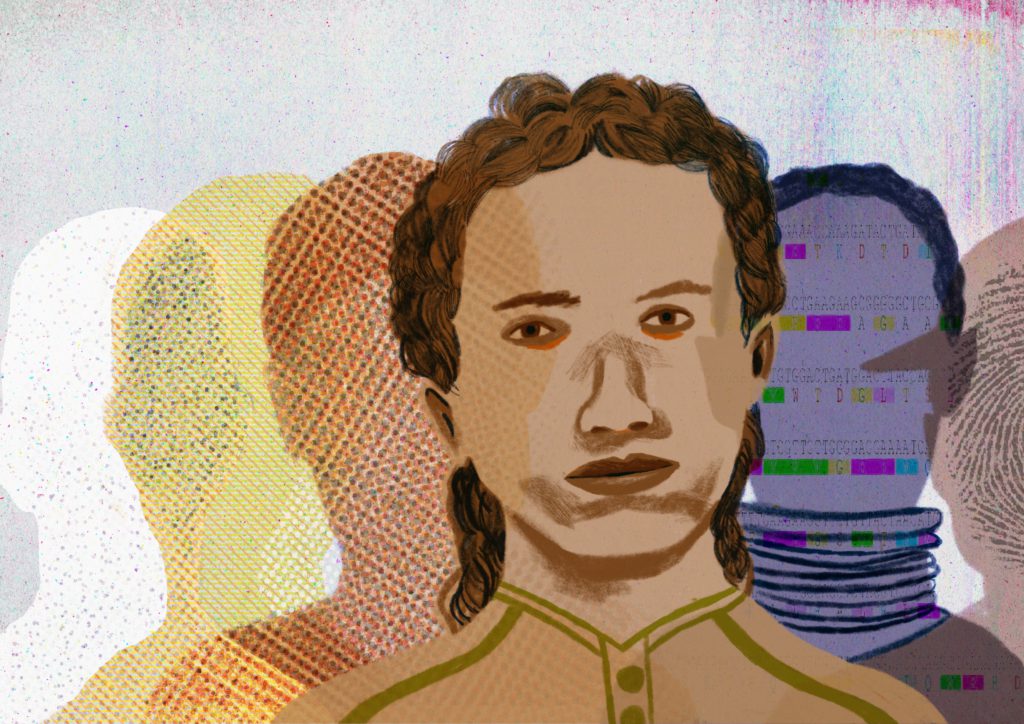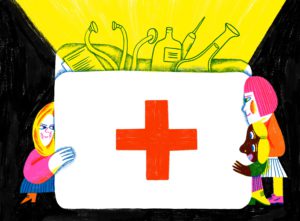
Pau Gasol
Description
The Dignified Identity solution is aimed at creating digital wallets for refugees, asylum seekers, and internally displaced people to provide credentials and eligibility for humanitarian aid assistance in Cash and Continuity of Healthcare. The solution was piloted in Uganda with the Uganda Red Cross Society and in Kenya with the Kenya Red Cross Society. Currently, the solution is being implemented in Kenya as a scale-up in the NCD in crises project funded by the Norvo-Disk Foundation through the Danish Red Cross.
Context
The solution is designed to meet social and organizational needs such as Identity, Protection, Inclusivity, Health, and Livelihood needs. The solution enables digital identity for the humanitarian sector to achieve efficiency in programming and restore the dignity of people to manage and use their data as they choose. DIGID provides flexibility and a business model for organizations assisting vulnerable people that wish to integrate the solution into their existing systems as a layer of data attributes rather than a beneficiary management system to establish people’s eligibility in receiving aid, optimize aid delivery, and reduce spillage for responsible humanitarian action towards people and donors. The solution allows beneficiaries to access services, especially undocumented people and will complement government efforts to identify populations through awareness raising and advocacy. The solution will enable people to overcome the portability challenges of physical documentation by availing a data set to establish their eligibility for humanitarian assistance. The solution is meant to provide an opportunity to address recommendations from lessons learned to enable referral, integration with other systems, recording of received assistance, and exploring a multi-sectoral use between health and social protection.
During the pilot, the solution was able to target 300 beneficiaries in the Cash context and 80 in the continuity of health care with the Kenya Red Cross Society. A total of 60 women with the Uganda Red Cross Society. Currently, with the scale-up of NCD in crises project in Kenya Red Cross it has targeted more than 250 beneficiaries within its first year of implementation.
Technical details & Operations
The Solution works for users with Smartphones, Features phones, or no phones. Below is the process flow for the DIGID solution. The beneficiaries can access the DIGID system via a web-based App, and even a USSD code.
- Data Collection- Specific data sets such as bio or health data are collected through data collection systems such as the Kobo ODK App for the Cash context and the Hospital Management Information System (HMIS) for the health context. The Kobo and HMIS can be integrated with the DIGID system.
- Digital wallet and credential creation- Once the data is collected digital wallets that contain bio or health data are collected. These are electronic forms of storing information. The bio-data contains- Name, Age, Vulnerability type, Location, and Gender, while the health data Contains-Health condition, last test done, last drugs issued, any form of allergies, and Date of next visit. Once the digital wallets have been developed, credentials in the form of QR Codes can be printed and issued to the beneficiaries.
- Issuance of QR codes and PIN- Beneficiaries will then be issued with QR codes and a One-Time-Pin (OTP) will be sent to the beneficiary to act as a security feature.
- Verification using QR code to establish eligibility- During the cash transfer context the beneficiaries will be visiting the humanitarian distribution points, and their QR codes will be scanned will special scanners to provide their eligibility to receive cash transfers. Once the eligibility has been confirmed they will be referred to proceed in receiving the cash transfers, in the case where eligibility was not confirmed the beneficiaries will be referred to another humanitarian organization that is part of the DIGID system. For the context of Health, beneficiaries’ QR codes are scanned by the Clinical officers, once scanned the Clinical Officers will be able to view their health data and advise the beneficiaries on the next action such as proceeding to the Medical Officer for further diagnosis, proceeding to lab officer for other tests, or proceed to the pharmacist to collect drugs.
In the case of Interoperability, where more than one humanitarian aid organizations are part of the DIGID system the organizations can work in a coordinated system and share data amongst themselves. The power to share data has been centralized to the beneficiary, as he/she needs to give consent before any data is shared.
Deployment & Impact
The solution was first deployed as a pilot, during the pilot the solution was able to target 380 beneficiaries for both the cash and Health context. In the pilot process, the solution was deployed through the below systematic approach.
- User Consultations
The DIGID project team had eight user consultations with eight target beneficiaries, two community leaders, 3 KIIs with humanitarian organizations based in Kalobeyei, 4 KRCS Incentive workers, and 1 KII with a Staff from the KRCS Health Facility. The user consultations were meant to record and integrate feedback to redesign the solution during the pilot phase.
- Prototyping the solution
Inception meetings were conducted by the DIGID team and engaged beneficiaries, stakeholders, and partners. Data collection exercises were conducted, and the project team collected bio and health data. Each beneficiary signed a consent form for their engagement in the pilot. Digital wallets were created and credentials were shared with the beneficiaries. Cross-border and interoperability simulations were conducted during the prototyping phase.
Two cross-border simulations were conducted to understand the opportunities and risks of digital credentials issued by one NS/ Humanitarian aid organization and verified by another as a person of concern moves across borders, explore how digital credentials could complement services provided at Humanitarian Service Points, foster more and better collaboration between NSs on the use of digital credentials in cash and health context during migration.
- Monitoring of the Digital Wallets
The DIGID project team conducted monitoring of the digital wallets. The monitoring was conducted at the KRCS health facility in the refugee settings, where the clinical officer scanned beneficiary QR codes while accessing health care, to collect feedback on how the digital wallets were enabling the continuity of health care. The monitoring was made possible with the active engagement of the incentive workers/ community health volunteers.
- Lessons learned workshops
Lessons learned workshops engaged the project team, partners, and stakeholders who participated in the implementation of the DIGID pilot. The aim was to gather findings and recommendations on:
> How digital credentials were used to establish eligibility for refugees, asylum seekers, and members of the host community to access continuing healthcare in Kalobeyei, and any risks to mitigate;
> How digital credentials provided more access and opportunities for individuals to manage their own data instead of simply giving their information to organizations;
> How interoperability could be enabled between NGOs where an individual with a digital credential issued by one organization is able to be recognized by other NGOs and receive health care saving time in lengthy and sensitive registration processes, leading to greater efficiency for NGOs and smoother processes for individuals;
> How data privacy and data protection were ensured by allowing only relevant information to be extracted or divulged from beneficiary digital credentials with their consent.
Proof of concepts was developed and shared, currently, the solution has been scaled up and has provided Digital credentials to more than 250 refugee community members, in the NCD (Non-Communicable Disease) in Crises project funded by the Norvo-disk Foundation through the Danish Red Cross Society. The beneficiaries are able to access continuity of healthcare using digital credentials and don’t have to carry manual health records to the health facility.





